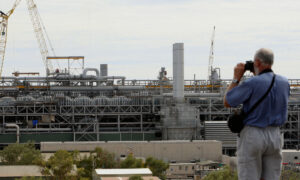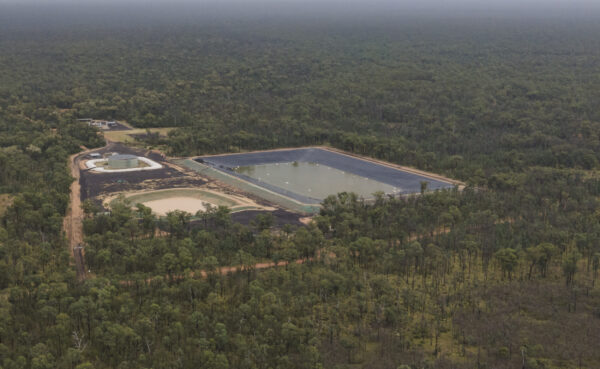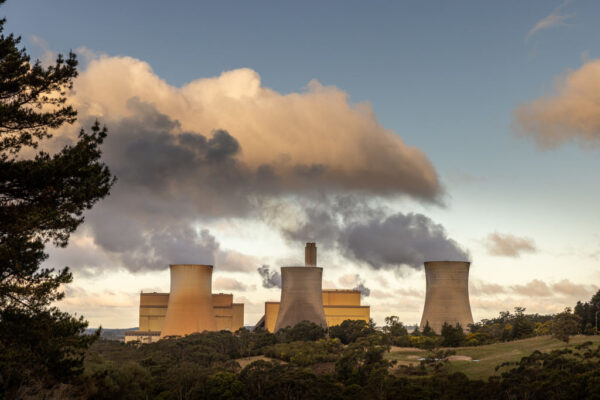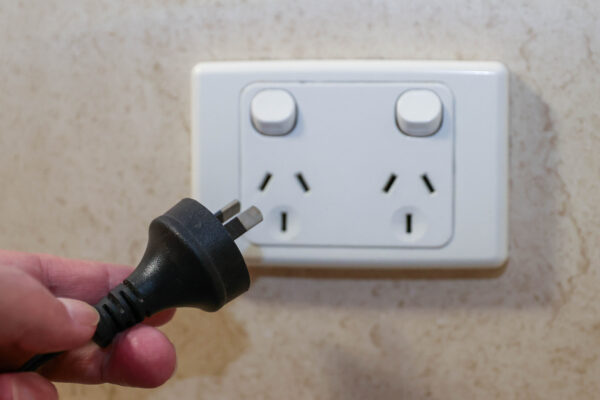Windfall Taxes Just Add More Problems to the Energy Crisis
Commentary If there is one sin worse today than producing fossil fuels, it is making money while doing it. The Australian energy industry is looking on with apprehension at repeated calls for so-called “windfall profit taxes.” There is no predicting the current government, which has shown zero circumspection against interference in energy markets at any level. The focus of the debate is on Woodside Energy, a Western Australia-based oil and gas company that turned a momentous 223 percent increase in profits this year. That’s large, even compared to other energy companies. The impressive profits were partly due to a merger, not just the current high prices. Their situation is also cyclical; they anticipate several major projects to require capital expenditure over the next few years, when the numbers will probably look different. Nevertheless, Woodside are to be congratulated for optimally situating themselves in a year when there was plenty of money to be made in their trade. Their shareholders are certainly thankful. It puts them, however, at the centre of the windfall taxes debate. Windfall taxes are specific taxes on an industry that is suddenly more profitable than normal due to extraordinary reasons. It May Be Justified But … Other countries, most notably the UK, have enacted windfall profit taxes. Shouldn’t Australia do the same? The government is entitled, of course, to impose taxes on companies and demand royalties on those that sell natural resources. Australia licences these companies to make a profit selling buried gas and hence demands something in return. A general view of Coal Seam Gas wells in the Pilliga Forest in Narrabri, Australia, on Feb. 6, 2021. (Brook Mitchell/Getty Images) What is unclear is how the government would justify suddenly increasing the rates and changing the rules. As Woodside is quick to point out, they have been paying their taxes at the currently agreed rate. As their profits increased, so did their taxes. This year they went up 311 percent, to $2.7 billion (US$1.8 billion). On what basis should the tax rate be changed? Several arguments have been proffered. First, that the high prices have been hurting consumers. This is undoubtedly true, but windfall taxes do not return money to consumers, they give it to the government. How the government will spend it is anyone’s guess, but recent years have shown that the amount Australian governments spend is not actually related to the amount they make—otherwise our federal government would not be $1 trillion in debt, and the state governments would not be racing to match it. Second, it is proposed (by the Australia Council’s Centre for Future Work) that companies are profiteering. That they are increasing their prices well above cost at the expense of consumers simply because they can. This shows an astounding ignorance of economics, and particularly the markets involved. The prices are being set by consumers, not producers, who are seeking to outbid one another for a resource that is currently scarce. The same logic was certainly not applied in 2020 when energy companies were selling gas well below cost due to resource abundance. If the government is going to ramp up taxes during the good times, then they have to also ramp up the support they offer during the difficult times. The most common argument, however, is that these companies shouldn’t be making such big profits, because they are causing climate change. A general view of The Yallourn Power Station in Yallourn, Australia, on Aug. 16, 2022. (Asanka Ratnayake/Getty Images) Socialists are opposed to profits as a matter of principal, yet tacking on the evils of climate change allows them to spread their net wider in gaining a sympathetic audience. The natural cycle of economics is this: low production causes scarcity, scarcity causes high prices, high prices produce profits, profits lead to more investment, investment leads to increased production, increased production reduces scarcity. It is automatically self-correcting. Unfortunately, the “energy transition” activists do not want increased production. They want the shortfall of energy to be met by new energy sources: renewables. Hence, they are keen to interrupt the natural economic cycle, attacking every step of the process just described. They have an entire artillery at work. On the government side: price caps, coal reserve quotas, environmental regulation, and subsidising alternative energy sources. In the private sector there are: hostile activist investors, protests, and lawsuits. So, an extra tax is only one weapon brought to bear. And, in one sense, taxes are not the most concerning of them—environmental and cultural roadblocks, as well as litigation, have a more immediate impact on the industry. While windfall taxes only come into effect after windfall profits—in other words, when the industry is already winning. Permanent Policy for Short-Term Problem Nevertheless, the whole point

Commentary
If there is one sin worse today than producing fossil fuels, it is making money while doing it.
The Australian energy industry is looking on with apprehension at repeated calls for so-called “windfall profit taxes.” There is no predicting the current government, which has shown zero circumspection against interference in energy markets at any level.
The focus of the debate is on Woodside Energy, a Western Australia-based oil and gas company that turned a momentous 223 percent increase in profits this year. That’s large, even compared to other energy companies.
The impressive profits were partly due to a merger, not just the current high prices.
Their situation is also cyclical; they anticipate several major projects to require capital expenditure over the next few years, when the numbers will probably look different.
Nevertheless, Woodside are to be congratulated for optimally situating themselves in a year when there was plenty of money to be made in their trade. Their shareholders are certainly thankful.
It puts them, however, at the centre of the windfall taxes debate. Windfall taxes are specific taxes on an industry that is suddenly more profitable than normal due to extraordinary reasons.
It May Be Justified But …
Other countries, most notably the UK, have enacted windfall profit taxes. Shouldn’t Australia do the same?
The government is entitled, of course, to impose taxes on companies and demand royalties on those that sell natural resources. Australia licences these companies to make a profit selling buried gas and hence demands something in return.

What is unclear is how the government would justify suddenly increasing the rates and changing the rules.
As Woodside is quick to point out, they have been paying their taxes at the currently agreed rate. As their profits increased, so did their taxes. This year they went up 311 percent, to $2.7 billion (US$1.8 billion). On what basis should the tax rate be changed?
Several arguments have been proffered.
First, that the high prices have been hurting consumers. This is undoubtedly true, but windfall taxes do not return money to consumers, they give it to the government.
How the government will spend it is anyone’s guess, but recent years have shown that the amount Australian governments spend is not actually related to the amount they make—otherwise our federal government would not be $1 trillion in debt, and the state governments would not be racing to match it.
Second, it is proposed (by the Australia Council’s Centre for Future Work) that companies are profiteering. That they are increasing their prices well above cost at the expense of consumers simply because they can.
This shows an astounding ignorance of economics, and particularly the markets involved. The prices are being set by consumers, not producers, who are seeking to outbid one another for a resource that is currently scarce.
The same logic was certainly not applied in 2020 when energy companies were selling gas well below cost due to resource abundance. If the government is going to ramp up taxes during the good times, then they have to also ramp up the support they offer during the difficult times.
The most common argument, however, is that these companies shouldn’t be making such big profits, because they are causing climate change.

Socialists are opposed to profits as a matter of principal, yet tacking on the evils of climate change allows them to spread their net wider in gaining a sympathetic audience.
The natural cycle of economics is this: low production causes scarcity, scarcity causes high prices, high prices produce profits, profits lead to more investment, investment leads to increased production, increased production reduces scarcity. It is automatically self-correcting.
Unfortunately, the “energy transition” activists do not want increased production.
They want the shortfall of energy to be met by new energy sources: renewables. Hence, they are keen to interrupt the natural economic cycle, attacking every step of the process just described.
They have an entire artillery at work. On the government side: price caps, coal reserve quotas, environmental regulation, and subsidising alternative energy sources. In the private sector there are: hostile activist investors, protests, and lawsuits.
So, an extra tax is only one weapon brought to bear. And, in one sense, taxes are not the most concerning of them—environmental and cultural roadblocks, as well as litigation, have a more immediate impact on the industry. While windfall taxes only come into effect after windfall profits—in other words, when the industry is already winning.
Permanent Policy for Short-Term Problem
Nevertheless, the whole point of taxes is to fund government, and this is their holistic effect: taxes shift economic resources from the private sector to the government. The more money the government takes, the more it has a say in how money is spent, and hence the allocation of resources across the whole economy.
This is a problem because governments are not good at knowing the best way to allocate resources.
And right now, this is a big problem, because Australia is experiencing an energy crisis.

The energy transition is a medium- to long-term aim, relying on technologies that are currently non-existent at scale (and quite possibly never will be).
Our global and local energy shortfalls are a short-term problem, caused in part by chronic under-investment. One simply cannot solve the other.
Yet the government continues boldly on the transition train, convinced that it knows best. We are currently prioritising a high-voltage electricity transmission line to connect News South Wales and South Australia.
At the completion of that line, energy giant AGL intends to close down South Australia’s last remaining base-load gas-fired power station.
All systems are go for the Integrated System Plan, which is Australia’s roadmap for the “energy transition.”
Whether we end up building more white elephants, or miraculously stumble upon the energy technology of the future, remains to be seen.
In the meantime, we have so valiantly interrupted and discouraged reinvestment in our grey elephants—those existing, proven, and reliable technologies—that our energy security continues to decrease even as our energy prices rise.
Windfall profit taxes are not about to improve that situation at all.
Views expressed in this article are the opinions of the author and do not necessarily reflect the views of The Epoch Times.












